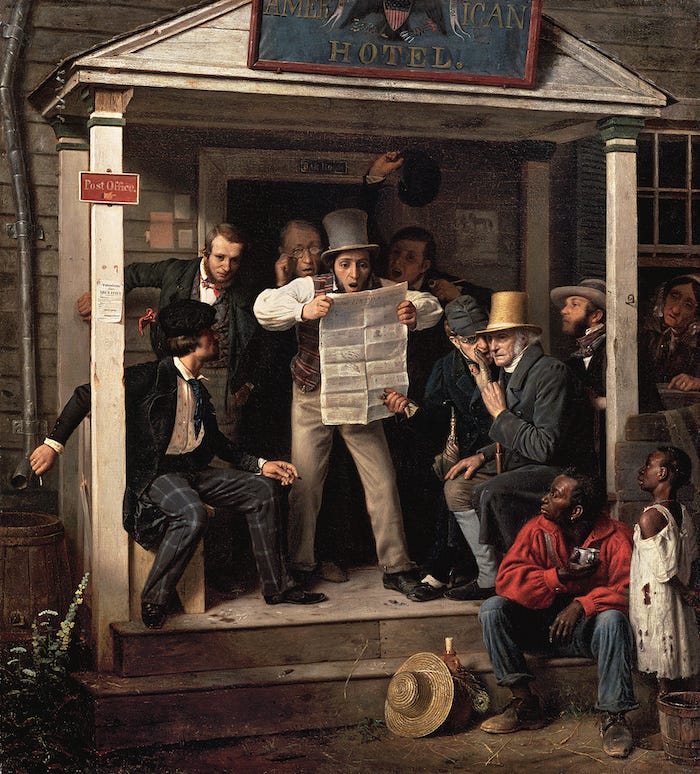Opinion journalism that doesn't do journalism is just opinion

Opinion journalism, as a practice and as a body of work, takes a lot of flak. Most of it is deserved, which makes it especially important to recognize good opinion journalism. Jamelle Bouie has a terrific piece in The New York Times today – not terrific because I agree with his conclusion or because he’s got a bunch of great zingers, but because it is terrifically reported journalism.
Bouie’s column looks at the epidemic of pedestrians killed by car drivers in the United States (up from 4,302 in 2010 to 7,624 in 2021). What makes it so good? First, it serves one of the most important purposes of journalism by informing readers about a topic that is important, relevant to their lives, and not covered much elsewhere. The Times itself reported on the 2021 data a few months ago, but that appears to be the only time the paper reported on pedestrians being killed by drivers using a thematic frame in a year and a half. A quick search suggests they cover this topic every couple of years, which might as well be not covering it.
Second – as is characteristic for Bouie, one of the best currently working in this form – it is strongly reported. He provides the overview. He provides the micro level – how bigger and bigger vehicles turn injuries into deaths. He provides the meso level – how policy choices at every level prioritize driver convenience and comfort over any safety concern. After identifying the problems, he talks about solutions that could apply at any level. In each case, the sources are there. He is not making assertions without evidence or elevating the things that grind his gears to national problems.
This is worth noting because it is uncommon from regular columnists at major news organizations. The other opinion pieces highlighted atop the Times page today that come from regular columnists are all about Israel in one way or another, and they are all recycling old takes. None provide under-reported information or even make arguments that a reader couldn’t find in a dozen other places. Like so many such columns, they also exist almost exclusively as discourse objects rather than as units of actionable information. For example, Ross Douthat argues that the US should be more concerned about China than about an expanded war in the Middle East. While this might be very interesting to the handful of people who like to argue over abstract political ideas but don’t have access to any sources other than the Times, it is not something that does anything for any readers’ practical lives, or even provides readers with information they can try to make political change with.
A question I have been mulling over is whether the mere presence of opinion content has effects on the public – that is, if “opinion” is a news agenda item that can be set in the public agenda. Part of the argument in favor of providing platforms to antidemocratic voices, for example, is the idea that journalism is meant to represent “a range of viewpoints,” and that doing that by providing said viewpoints with unencumbered access to audience is a core journalistic tenet. But this notion has risen as opinion sections – potentially significant social media traffic drivers and generally cheaper than on-the-ground reporting – have expanded.
My research question is superficial in one sense – I want to know if people respond to expanded opinion sections by being more likely to think that opinion in general is an important part of journalism – but there’s a deeper, more important aspect to the question. If our opinion pages are dominated by repetitive arguments that largely reflect strategic political actors jockeying both between and within parties, we should probably think of it as part of the “game frame,” coverage that approaches politics in terms of competition, strategy, and winners and losers. Among other things, we know that game frame political coverage tends to foster feelings of cynicism about politics – that politics is pointless, that the parties are the same, that government doesn’t do anything for society, and that one can’t really improve society through the political process. We also have evidence that national opinion being syndicated into local papers has at least a mild effect of diminishing people’s feelings of connection to those in their communities.
Work likes Bouie’s breaks the mold of opinion journalism that merely serves the ritual of elite political discourse, and may play a role in actually reinvigorating positive feelings about the press and democratic processes. But it’s not going to do it on its own. Opinion journalism, like the best reporting, needs to think first and foremost about what of value it offers to the public.

